See below for a description of the legends used
| Source host | Destination host | Via what network | Located at what campus | Graph |
| The ESMF | The Hiperwall (hiperstore, specifically) | The Optiputer | UCI | 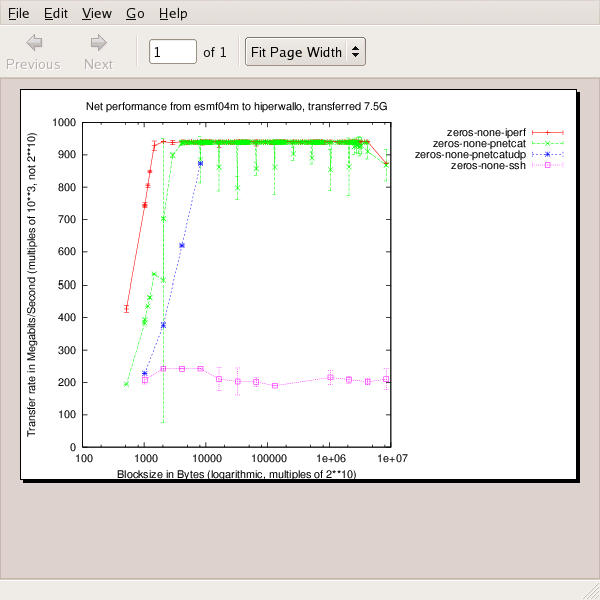 |
| The ESMF | seki.nac | UCInet | UCI | 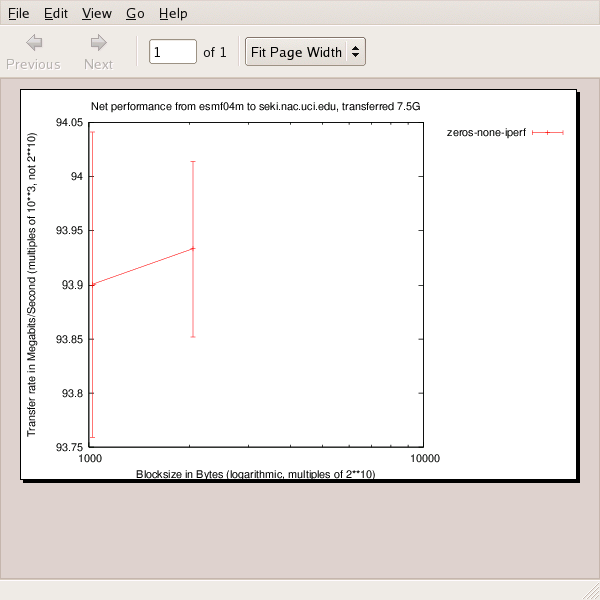 |
| The ESMF | spds1 | The Optiputer | UCSD | 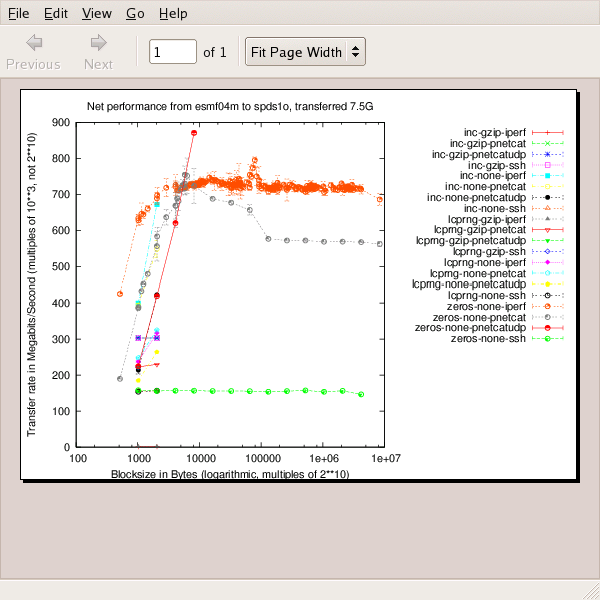 |
| The ESMF | storage | The Optiputer | UCSD | 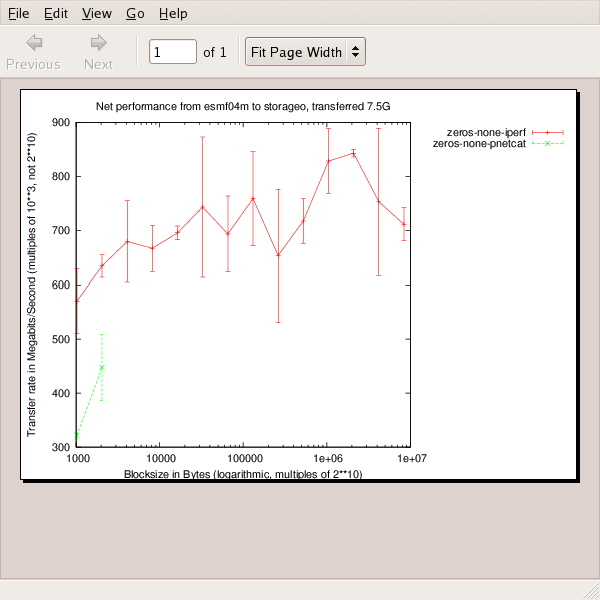 |
| The ESMF | storage (this one is just using zeros data source, none compression, and iperf+TCP protocol | The Optiputer | UCSD | 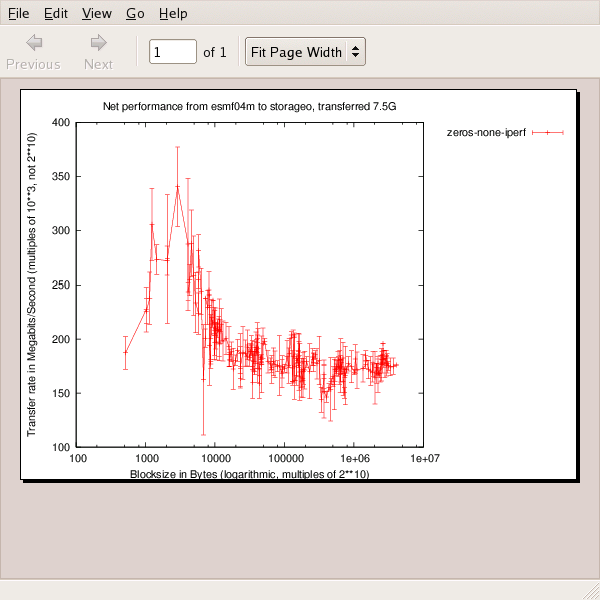 |
About the legends:
- Data sources
Name in legend Meaning zeros Use data from /dev/zero inc Use the byte sequence 0,1,..255 over and again. It amounts to one add per byte lcprng Use data from a very simple, relatively fast (compared to /dev/random or prngd or whatever) linear congruential pseudo random number generator. It amounts to one multiply and two divides per byte - Compression algorithms
Name in legend Meaning none Don't compress at all gzip compress using the gzip program via a pipe bzip2 compress using the bzip2 program via a pipe - Transfer protocol
Name in legend Meaning iperf Use iperf via TCP iperfudp Use iperf via UDP ssh Use ssh pnetcat Use pnetcat via TCP pnetcatudp Use pnetcat via UDP
